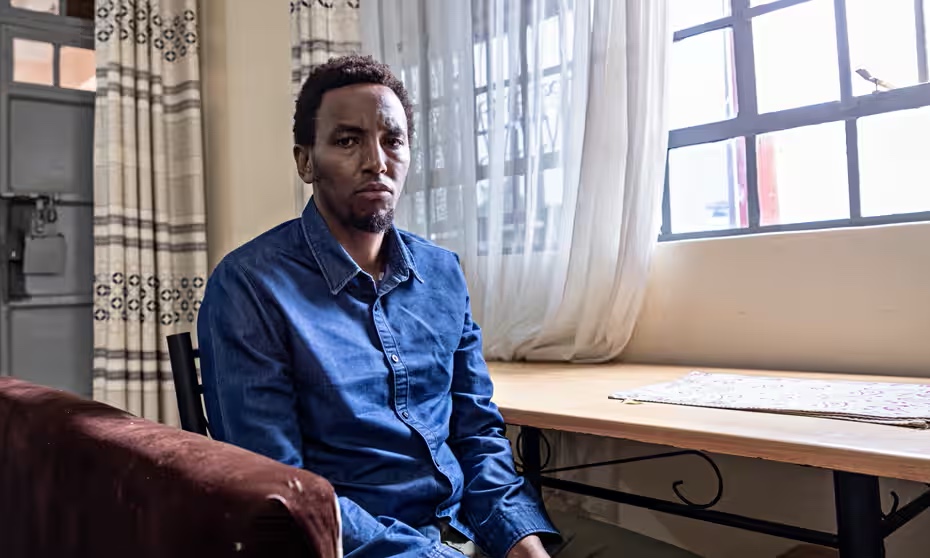Sent home: How Kenyan’s dream of life as a UK care worker turned sour
Anthony Mbare found his tied visa put him at the mercy of his bosses. As a UK care worker, he is one of thousands who have come to plug shortages in adult social care.
Original Article: The Guardian by Shanti Das and Charlie Moloney
It is a bitter November night and Anthony Mbare is shivering in a car in rural Wiltshire, south-west England, waiting to see his next client.
It’s 3C and he has been here for almost two hours but he cannot turn on the heater because the car battery might die. A petrol-station coffee to warm him up is £3 he cannot afford. He blows on his hands, wriggles his toes and huddles under a blanket.
At around 9pm, Mbare knocks on the client’s door. She is “middle class”, elderly, kind and terminally ill. For the next 30 minutes he will provide personal care and help her get ready for bed. By the time he makes it home, he will have seen 10 clients and been out for more than 16 hours, having had his first appointment at 7am. Today is a good day: he will make £61.20. Some days it is as little as £15.
Chronic Staffing Shortage in UK Care Workers
Mbare is one of thousands of care workers hired from abroad to help tackle a chronic staffing shortage in social care. In the year to March 2023, 57,693 people were granted skilled worker visas to take up jobs in the sector, with most recruited from lower-income countries outside the EU.
For Mbare, moving to the UK had seemed like a chance to transform his family’s future. The father of three uprooted his life in Kenya to come: he sold his belongings, left his job and paid £2,500 in “admin” fees to a domiciliary agency which, he claims, promised him a full-time, minimum-wage job – 10 times what he could make back home.
But last week, less than a year after he arrived, he says he was forced to return to Nairobi – “£10,000 in debt” and with no job to go back to. He claims his employer fired him and terminated his visa sponsorship after he raised concerns about working conditions. It then failed to provide him with a reference, he says, thwarting his chances of finding another care sector sponsor – and leaving him unable to remain in the UK. The company denies wrongdoing and disputes Mbare’s account.
